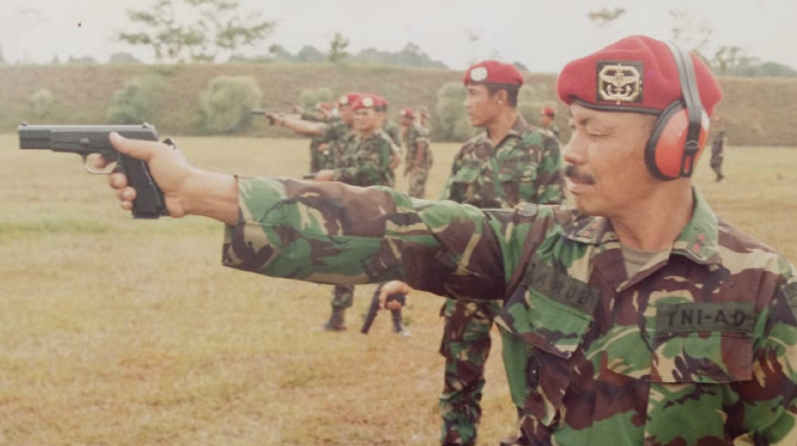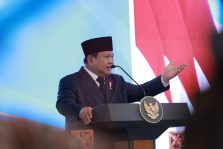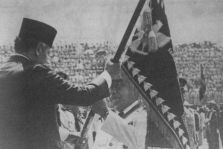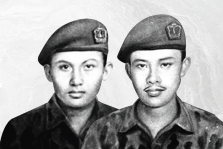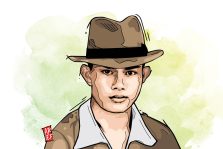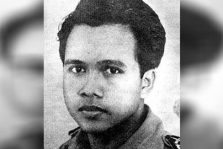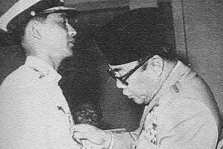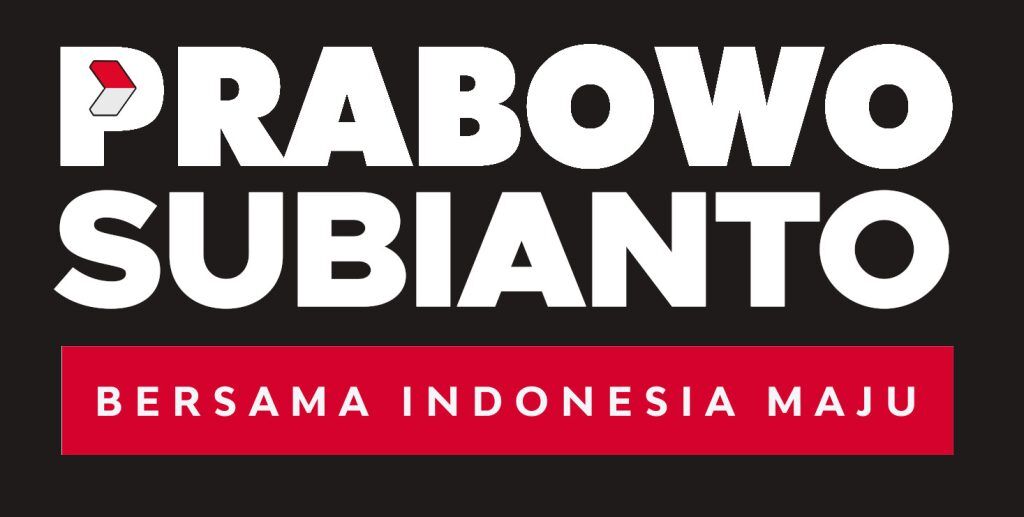Pak Tarub often gave me assignments. But after he delegated the duties to me, he let me finish the task without interference. That’s what I noted from a number of my seniors, including Pak Tarub. Many of my seniors delegated duties to me, gave me the order and provided me with anything I required but would not interfere with the execution.
I employ this trait in my leadership style. I delegate tasks to my men, and then I let them complete their duty. I would prepare whatever is needed to execute the duties, of course, but I would give them the flexibility to carry out their duty.
As a field commander, I don’t like it when a superior officer must micromanage every detail, when everything I do must be questioned or supervised. In my experience, hands-off but careful delegation is the right type of leadership.
Pak Tarub was a graduate in the class of 1965 at the Military Academy. My first direct interaction with him was when he requested me to move from the 17 Brigade Chief of Staff to be the Commander of PUSDIKPASSUS in Batujajar. I considered this to be an honour.
What he said then was interesting to me. ‘Prabowo, try to fix Batujajar. Fix the curriculum. Make Batujajar one of the best special forces training centres in the world.’ I carried out that mission, and with his support, I improved the curriculum and training system.
Before I assumed my role as Commander of PUSDIKPASSUS, I assembled all the information that I could get about the best special forces worldwide, including the U.S. Delta Force, British SAS (Special Air Service), Germany’s GSG-9 and the British Royal Commando. Each time, all I was looking for was their training and education curriculum.
I remember my visits to many of their units, studied their physical fitness requirements and redesigned the basic commando force using the best practices and the criteria of the best special forces in the world. I remember my training with the US Green berets 1980, my training with the German GSG-9. The SAS regiment in the UK; I remember my visit to Australia visiting the Australian SAS regiment in Perth, Western Australia. I read intensively about the Royal Marine Commando Training. Also, the US Army Ranger training. I interviewed graduates of the Ranger course. And only then did I formulate the new curriculum of the Indonesian Special Forces.
I tried to improve the technical proficiency of the Commandos of Indonesia. A commando needs to be tough but also be very technical. He must be a good marksman and know his weapon well. He must be good with all the weapons, even rocket-propelled grenades. He must also be good at explosives and demolitions. He must be very good with map-reading, land navigation and radio communications. He must be good at field-craft, how to camouflage oneself in the jungle, and how to read the tracks of the enemy.
This was what I formulated, and Pak Tarub always backed me. At that time, I tried to do away with useless physical harassment of young recruits, too much hazing bordering on physical and mental abuse. There was a common perception at that time from many of the older generation of instructors that they had to be quite brutal in training to prepare the soldiers for the violence of field combat.
I agree that we need to prepare troops for the hardships of war, but a training course should impart technical proficiency, and for this, one should not abuse one’s trainees.
For example, there was a tradition of emptying the water bottles before a long march and soldiers were discouraged from drinking during 18 – 20 km march. In the 70s and 80s, many would collapse. Some even would die because of heatstroke. As the Batujajar commander, I did away with this. Drinking water is a physical need. I made sure the troops would get enough sleep to be alert the next day. Sleep deprivation should be trained, but in no way should it be conducted throughout the course of 10 months. I made sure that the trainees met hard exercise with a proportional period of rest. Pak Tarub backed me all the way.
From Pak Tarub, I learned that to assess an elite squad, one must look at their educational curriculum. One must calculate how many hours they learn the tactics, techniques, and so on. One must calculate how many rounds each soldier shoots. Then, we would know their quality.
That’s what I did with the backing of Pak Tarub. I improved the quality and curriculum of commando training. After observing it for years, I am grateful that some of the changes I made are still being applied in Batujajar today. During my tenure, I was proud that after training thousands of soldiers, I had zero deaths from the training, and only a few got slight injuries and none very serious. These soldiers are our assets. They are the sons of Indonesian fathers and mothers. Leaders must take care of them with the greatest attention.
Pak Tarub is known as a jolly, humorous man. He is very persuasive and composed. I rarely saw him angry. He is tender, kind and empathetic, making him well-liked by his superiors, colleagues, and his men.
Pak Tarub has been involved in field operations since he became a captain. His main hobby is shooting, also martial arts, and other sports. He was famous for his anti-guerrilla missions against the Parako in Kalimantan.
Pak Tarub often gave me assignments. But after he delegated the duties to me, he let me finish the task without much interference. That was what I noted from a number of my seniors. They would delegate duties to me, give the order, and provide me with everything I needed, but give me the freedom to do the execution.
I also apply this in my leadership style. I would look for capable men to delegate duties to them, then I let them complete the duties themselves. I would prepare whatever they needed to execute the duties, of course, but I would give them the flexibility and initiative to carry out their duties.
As a field commander, I dislike micromanagement – that is when everything I do must be questioned, supervised or scrutinised. This is, in my observation, not a very successful leadership style. A good commander must, of course, have a certain attention to detail. Sometimes it is the small things that make a great plan fail. In many cases in history, micromanagement turns out to be detrimental to operations.
In active and powerful units and exceptional troops worldwide, that is the leadership style of the commendable generals. It is known by the term used by the German and American officers as ‘mission type order’. Commands by simply giving the main task, no details necessary.
This was carried out by Pak Sahala Rajagukguk when he commanded me in 1978 in the operation to capture Lobato. ‘You get to this point. Continue the pursuit to these coordinates. Then you know what to do. See you again in a few days with this helicopter.’ He then flew away. There were no rambling operational orders. Sometimes I hear stories of commanders who will give five pages of written orders. That is not the way to go. I also learned this from Pak Tarub.

